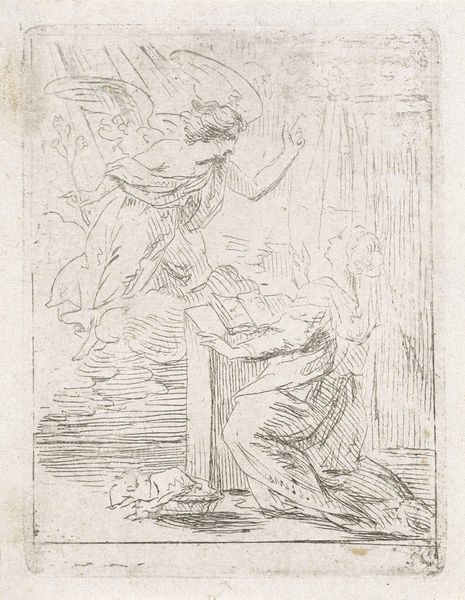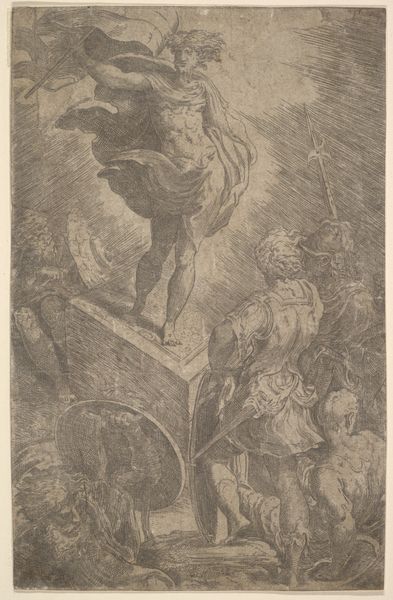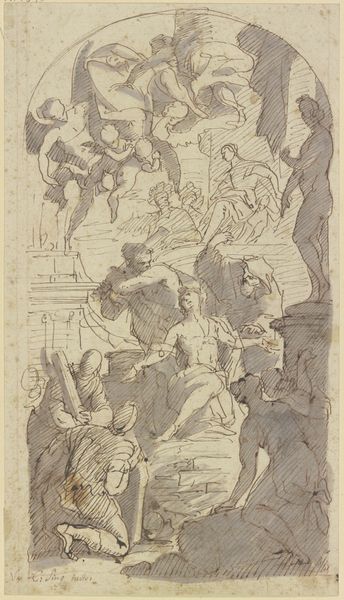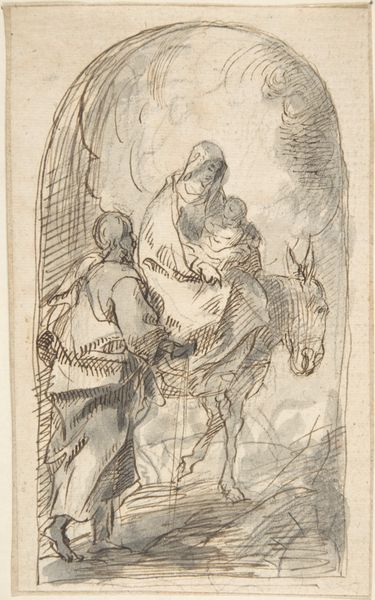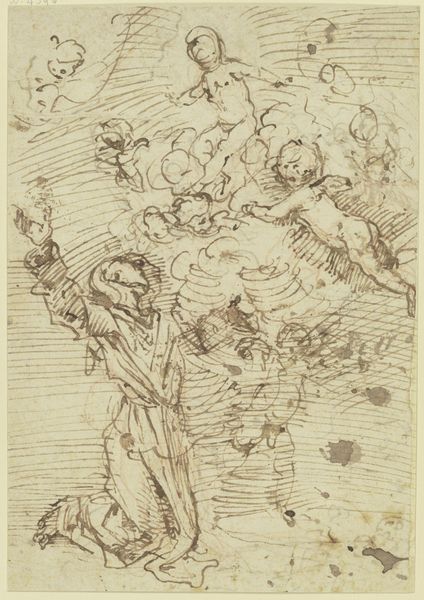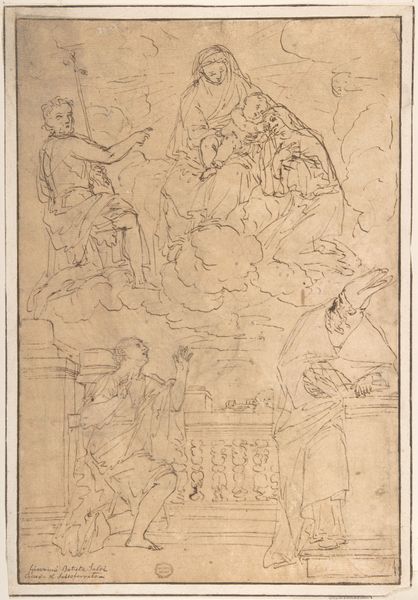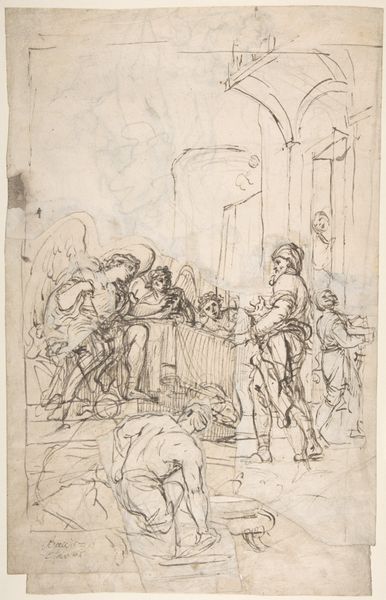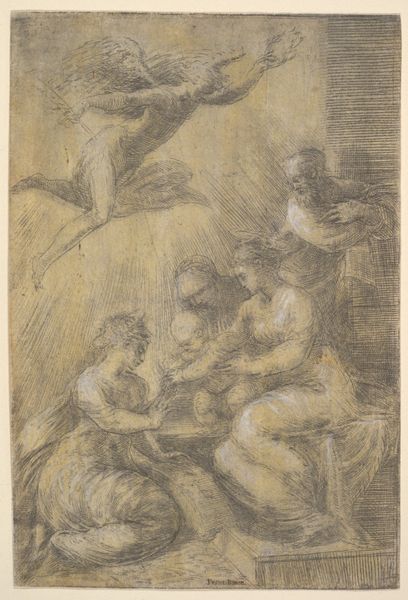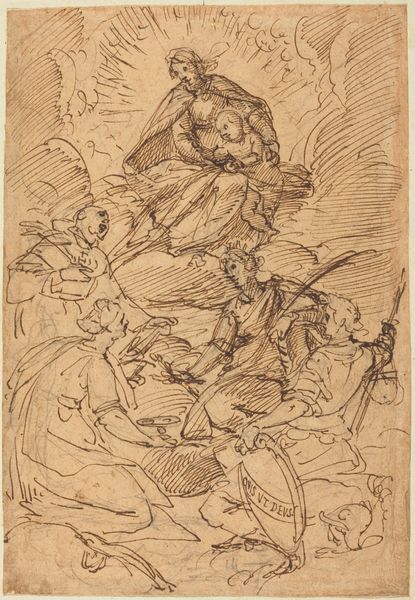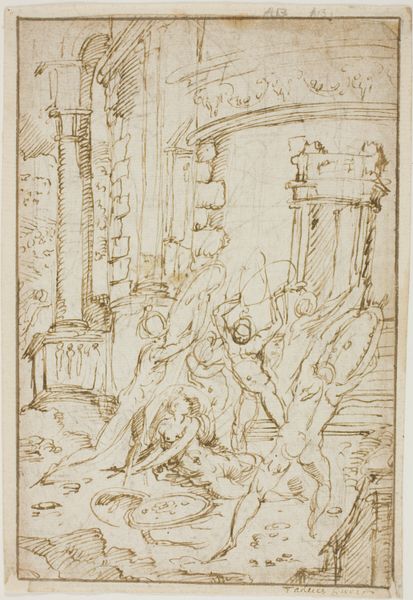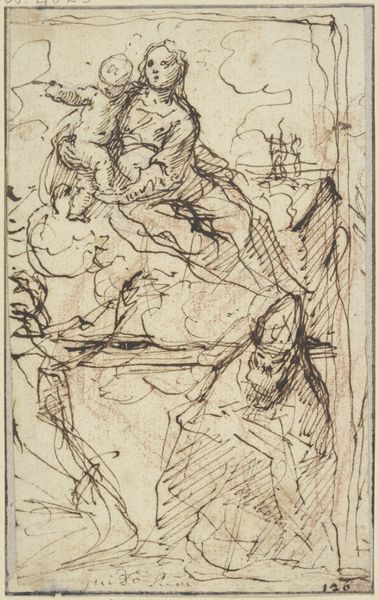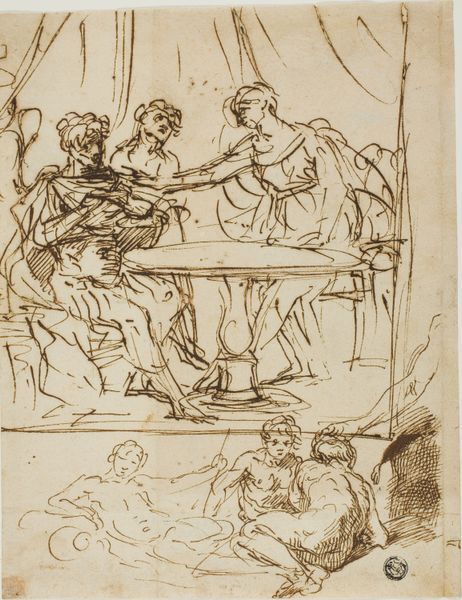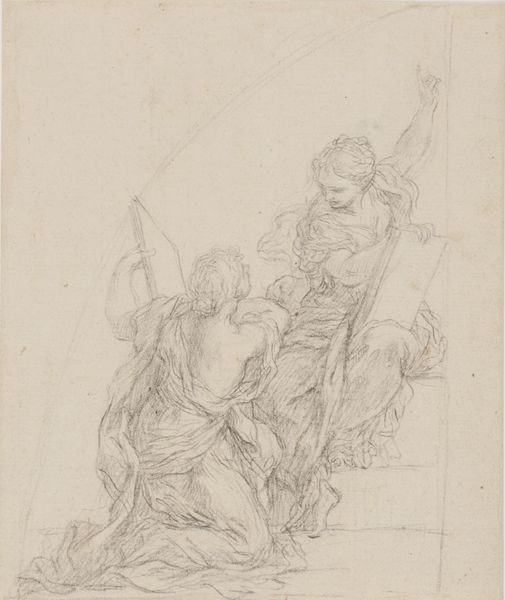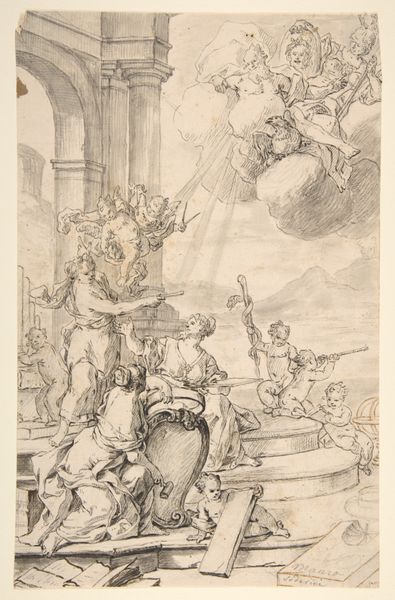
drawing, ink
#
drawing
#
ink drawing
#
allegory
#
baroque
#
etching
#
ink
#
history-painting
Copyright: Public Domain
Nicolas Poussin made this pen and brown ink drawing of Clio and Pheme. The fluid lines and tonal variations achieved with brown ink on paper imbue the figures with a sense of movement and depth. The artist skillfully employs hatching and cross-hatching to define forms and create shadows, contributing to the dynamism of the composition. Pen and ink lends itself to portability. The work doesn't have the laborious or capital-intensive investment associated with painting, fresco, or sculpture. Poussin’s draftsmanship reflects an intimate connection with classical traditions, filtered through the lens of the Renaissance. He worked in a very different way than, say, Bernini or other Baroque artists known for their workshops. The gestural quality of the drawing speaks to the artist's direct engagement with the material, and the spontaneity and immediacy with which he captured the scene. By focusing on the materiality and making of this drawing, we can move beyond traditional art historical narratives. Instead, we can engage with the work on a more tactile and sensory level.
Comments
No comments
Be the first to comment and join the conversation on the ultimate creative platform.
